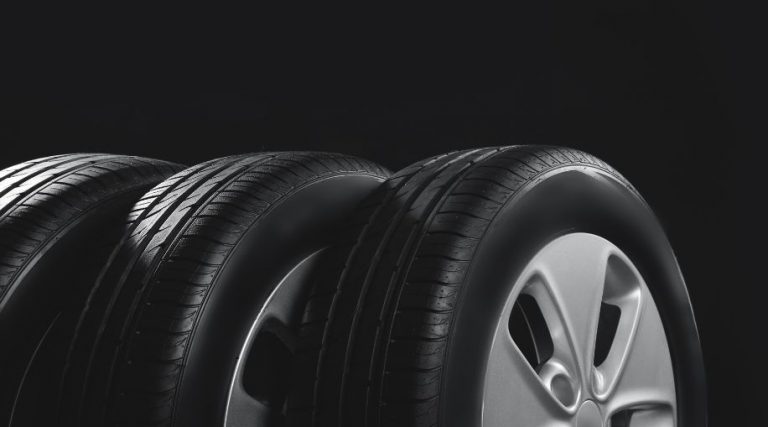Behind the Wheel
Choosing between a truck vs. SUV can be challenging, particularly when considering the diverse range of options available in both categories. Each type of vehicle offers unique advantages and disadvantages, making it essential to carefully weigh the pros and cons to match your specific needs and preferences. In this article, we’ll delve into the main differences between trucks and SUVs, addressing crucial aspects such as gas mileage, towing capacity, cargo space and more.
The Basics of Trucks and SUVs
Before diving into the differences, it’s important to understand the basic definitions of these two vehicle types.
Trucks
Trucks are designed primarily for heavy-duty tasks. They typically come with an open cargo bed at the back and have various configurations, such as compact, full-size and heavy-duty trucks. Trucks excel in carrying large, heavy cargo and are known for their towing capabilities. Pickup trucks are a popular subcategory.
SUVs
SUV stands for Sports Utility Vehicle, and they are generally designed for a mix of off-road capabilities and everyday driving. SUVs come in various sizes and often feature four-wheel drive or all-wheel drive. They’re known for their spacious interiors, comfortable seating and versatility in handling different terrains.
Related Search Topics (Ads)
Gas Mileage
Gas mileage is a common concern when it comes to trucks. Due to their often larger and more powerful engines, trucks generally have lower gas mileage compared to SUVs. However, in recent years, some manufacturers have been working to improve the fuel efficiency of trucks, offering hybrid and diesel options.
SUVs, on the other hand, often provide better gas mileage than trucks, especially smaller SUV models. Many SUVs now come with hybrid or electric variants, further enhancing their fuel efficiency. If you’re looking for a more environmentally friendly and cost-effective option, an SUV may be the better choice in terms of gas mileage.
Towing Capacity
Trucks are renowned for their towing capacity. A truck is likely the better choice if you need a vehicle that can haul heavy trailers or boats. Full-size trucks, in particular, have impressive towing capabilities and can handle substantial loads with ease. Pickup trucks, with their open cargo beds, are often the preferred choice for hauling large, bulky items.
While many SUVs are equipped with towing capabilities, they generally don't match the towing capacity of trucks. However, SUVs can still handle smaller trailers and boats, making them suitable for moderate towing needs. If you need a vehicle that can balance both passenger comfort and towing capacity, a mid-size or full-size SUV might be a good option.
Cargo Space
Trucks offer excellent cargo space in the form of their open cargo beds. This makes them ideal for carrying oversized or heavy cargo, such as construction materials, furniture or recreational equipment like dirt bikes and ATVs. However, the cargo area is exposed to the elements, so you may need to invest in accessories like bed covers or caps for added protection.
SUVs, on the other hand, excel in providing enclosed cargo space within their cabins. They often feature rear seats that can be folded to create a spacious, flat cargo area. This makes SUVs more suitable for transporting groceries, luggage and other items that must be shielded from the weather. The enclosed cargo space also adds a level of security and privacy.
Parking
The larger size of many trucks can pose challenges when it comes to finding parking spots, particularly in crowded urban areas. Parallel parking and fitting into tight spaces can be more cumbersome. On the positive side, some trucks come equipped with advanced parking assistance features to ease the parking process.
SUVs typically offer better maneuverability and ease of parking compared to larger trucks. They strike a balance between size and practicality, making them more suitable for daily commuting and city driving. Some SUVs even come with features like parking sensors and backup cameras to enhance parking convenience.
Price
The price of a truck can vary significantly depending on the brand, model and trim level, so you will want to check the price of specific models. Generally, trucks tend to be more expensive than SUVs, particularly the heavy-duty and luxury models. The initial cost of a truck is something to consider when evaluating your budget.
SUVs often come in a wide price range, from affordable compact models to high-end luxury options. Many mid-size and full-size SUVs offer competitive pricing when compared to similarly equipped trucks. When considering your budget, the cost of an SUV may be more manageable.
Tailgate or Trunk
There is no one-size-fits-all answer in the ongoing debate between a truck vs. SUV. The decision largely depends on your individual needs and preferences. Trucks are a practical choice for those who require substantial towing capacity and the ability to transport large, heavy cargo. On the other hand, SUVs are versatile vehicles that offer better gas mileage and enhanced cargo protection, making them ideal for families and urban commuters. So, before deciding, consider all the differences between these two options!

